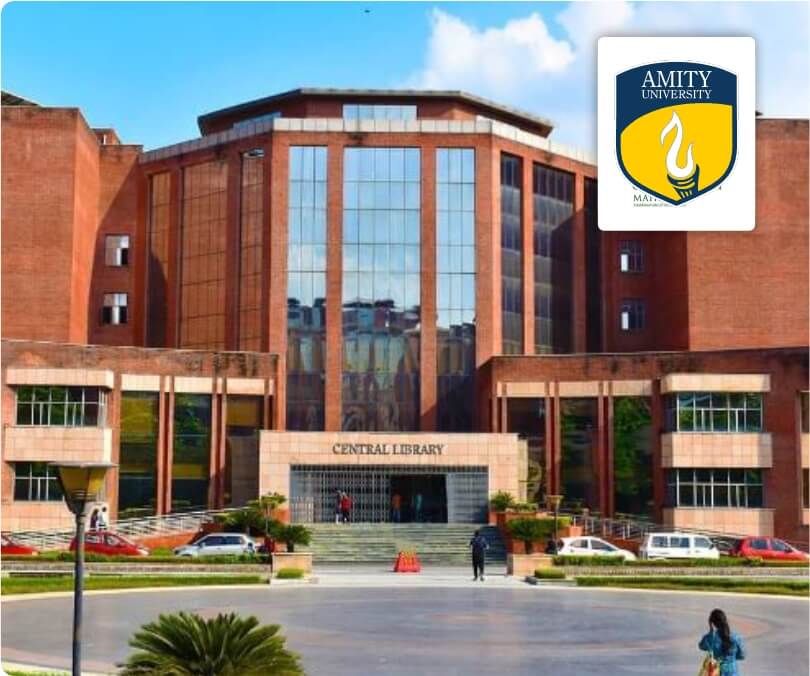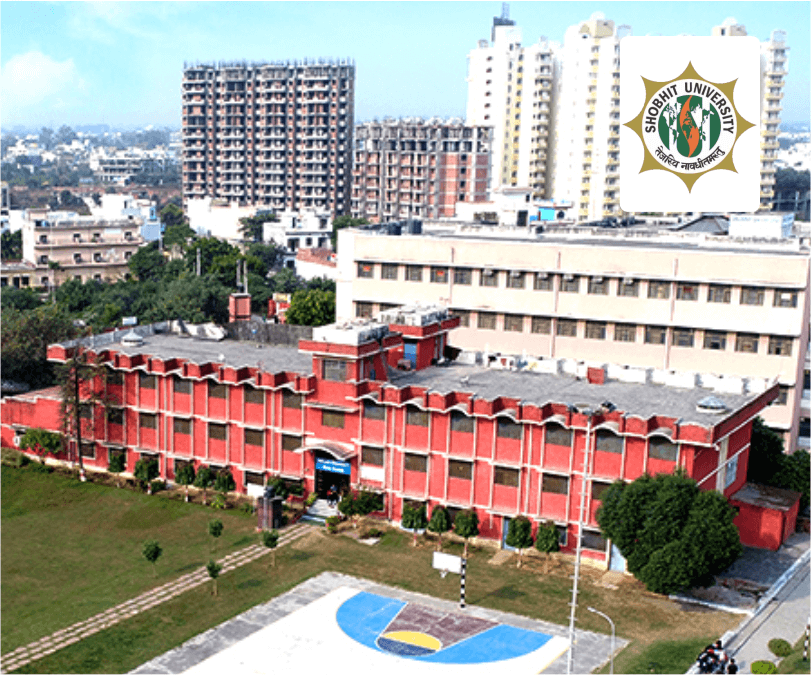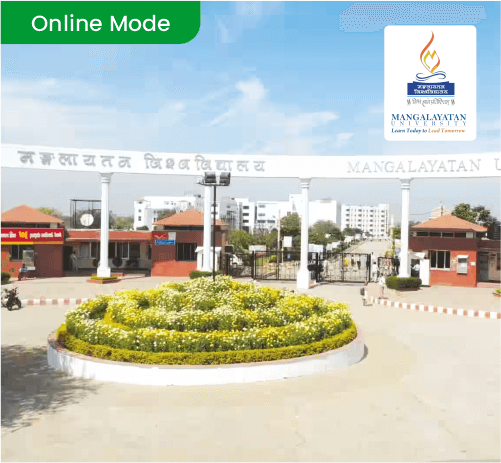
How To Become a Journalist in 2026
Journalism is changing quickly as technology continues to evolve, shifting the way news is produced and consumed. Newsrooms, once focused on print, now share news through blogs, social media, podcasts, and videos. Journalism has always been important, helping us understand the world, hold those in power accountable, and stay informed. In 2026, journalism will be more dynamic, interactive, and important for society.
If you want to become a journalist, there are clear steps to follow. Starting with a journalism course after 12th can be a great first step. This blog will guide you on how to become a journalist in 2026, covering the necessary skills, educational paths, career options, and the future of journalism.
Understanding the Role of a Journalist
In the past, a journalist job was simple – collect information, write news, and share it through newspapers or TV. But in 2026, this job has grown because of digital media, social media, and new ways of storytelling. If you are considering a journalism course after 12th, you will quickly realize that the world of journalism has evolved dramatically.
Digital Journalism: Online platforms like blogs, YouTube, and social media have changed the way news is made and shared. Journalists now work on different platforms and create articles, videos, podcasts, and infographics. In 2026, a journalist needs to be comfortable using all these formats. Taking a journalism course after 12th will help you learn the skills needed for this fast-changing digital world.
Citizen Journalism: The role of the journalist is also changing with the advent of citizen journalism. Ordinary people, equipped with smartphones, can now report and share news in real-time. This trend has both benefits (increased access to information) and challenges (the spread of misinformation), which journalists must navigate. A journalism course after 12th can help you understand the complexities of citizen journalism and how to handle real-time news reporting effectively.
Ethical Journalism: Despite these changes, the fundamental values of journalism—accuracy, fairness, and impartiality—remain the same. Journalists are tasked with ensuring that they provide truthful and reliable information to the public, combating the rise of fake news and misinformation. A strong journalism course after 12th will also instill in you the ethical guidelines necessary for responsible journalism in today’s digital age.
Essential Skills for Aspiring Journalists
Becoming a successful journalist in 2026 requires a mix of traditional skills and modern technology. If you are looking for a journalism course after 12th, learning these skills will be important. Here are some key skills you’ll need to grow in this exciting field:
Writing and Communication Skills: The base of journalism is the ability to write clearly, simply, and in an interesting way. Journalists should know how to report news, tell stories, and create content that grabs people’s attention. Whether you are writing an article or a video script, good communication is important.
Research and Critical Thinking: Journalism often means searching for facts, checking if information is true, and understanding data. Strong research skills and the ability to judge if a source is trustworthy are very important. Asking the right questions and not believing things without proof are signs of a good journalist.
Digital Skills and Multimedia Knowledge: With journalism now including online content, knowing how to use digital tools is necessary. You need to learn how to work with websites, social media, and editing tools for videos, podcasts, and pictures. Basic video and audio editing skills are very useful, as they help journalists create content for different platforms. If you’re thinking about a journalism course after 12th, choose one that includes multimedia training.
SEO Knowledge: As more news moves online, journalists should know about SEO (search engine optimization) to help their content reach more people. Understanding how to use keywords, short descriptions, and ways to make articles show up in search results is very helpful. Many journalism course after 12th programs now teach SEO as part of their lessons.
Social Media Skills: Social media is now one of the strongest tools in journalism. Journalists should learn how to use popular platforms like Twitter, Facebook, and Instagram to share their work, connect with readers, and stay updated on the latest news.
Journalism Courses After 12th
After finishing your 12th grade, choosing a journalism course can be the first step towards a great career in media. These courses teach the basic skills and knowledge needed to succeed in the fast-changing world of journalism. Below are some popular journalism courses you can take after 12th.
Bachelor Degree Options
B.A. in Journalism and Mass Communication: This degree is a traditional pathway for those looking to become journalists. A journalism course after 12th, such as a B.A. in Journalism and Mass Communication, focuses on the essential skills of reporting, writing, and editing, along with an understanding of media laws, ethics, and digital journalism. It also includes courses on media management, helping students prepare for careers in print, broadcast, and online journalism.
B.A. in English or Literature with Journalism Specialization: If you have a strong interest in literature, an undergraduate degree in English, combined with a journalism specialization, can be an excellent choice. This journalism course after 12th provides a broad understanding of language and storytelling while improving your reporting and writing skills. It is a great option for those who want to explore journalism with a strong foundation in literature.
B.Tech in Media Technology: With the growing demand for multimedia skills, many universities now offer technical degrees related to media production, such as a B.Tech in Media Technology. This journalism course after 12th focuses on the technical aspects of journalism, including video editing, sound production, and digital media. It is ideal for students who are interested in the technology behind news production and media content creation.
Online Journalism Courses and Certifications
Digital media is growing fast, and online journalism courses are in demand in India. These courses let students learn at their own speed and develop skills in writing, digital media, and multimedia journalism. Many universities in India, like IGNOU, Symbiosis, Amity University, and Chandigarh University, offer online courses and certifications that help students understand modern journalism. If you are looking for a journalism course after 12th, these online programs can be a great option to start your journey in the field.
Below is a list of some top online journalism courses and certifications available in India.
Bachelor of Arts in Journalism and Mass Communication (BAJMC)
BAJMC is a 3-year undergraduate degree course that covers various aspects of journalism, including reporting, editing, media law, and digital journalism. This is a popular journalism course after 12th, available through online learning platforms and universities in India.
| Course Name | Duration | Description |
|---|---|---|
| Bachelor of Arts in Journalism and Mass Communication (BAJMC) | 3 Years | Covers various aspects of journalism, including reporting, editing, media law, and digital journalism. Available through online platforms and universities. |
| Master of Arts in Journalism and Mass Communication (MAJMC) | 2 Years | Advanced study in journalism, media laws, reporting, and editing. Specializations available in digital journalism, public relations, and broadcast journalism. |
| Postgraduate Diploma in Journalism | 1 Year | Focuses on writing, reporting, and media ethics with a strong emphasis on digital platforms. Ideal for quick professional skills. |
| Online Certificate Courses in Journalism | Few Weeks to Months | Short-term courses focusing on digital journalism, multimedia content creation, and social media reporting. |
| Diploma in Journalism and Mass Communication | 1 Year | Covers writing, editing, media laws, and communication with practical training in news reporting and digital media. |
Career Options After Journalism Course in India
If you take a journalism course in India, you can explore many jobs in media. The media world is always changing, but skilled journalists are still in demand. Below are some career options in journalism, along with salary ranges
| Career Option | Job Description | Salary Range (Per Year) |
|---|---|---|
| Reporter/Journalist | Reporters find and write news stories for newspapers, TV, or online platforms. They collect information, talk to people, and make sure their reports are correct. To do well in this job, you need good communication skills and curiosity. | ₹3,00,000 – ₹8,00,000 (entry-level to mid-level) |
| Editor | Editors check and improve the work of journalists. They correct grammar, style, and facts to make sure the content is ready to publish. They also help writers tell stories in a better way. | ₹6,00,000 – ₹15,00,000 (depending on experience and media house) |
| Content Writer | Content writers create articles, blogs, and social media posts on different topics. They work for websites, digital media companies, or as freelancers. Good creativity and research skills help them connect with their readers. | ₹2,50,000 – ₹6,00,000 (entry-level to mid-level) |
| Public Relations (PR) Specialist | PR specialists take care of a company’s or person’s public image. They write press releases and plan media campaigns. They also talk to the press. They also handle difficult situations and public criticism is an important part of this job. | ₹4,00,000 – ₹10,00,000 (depending on experience) |
| Social Media Executives/Managers | Social media managers and executives take care of a brand’s or a person’s online presence. They create posts, interact with followers, and check how well posts are performing. They need to follow the latest social media trends to attract more people. | ₹3,50,000 – ₹8,00,000 (depending on company and experience) |
| Photojournalist | Photojournalists take pictures that tell news stories. They often travel to cover events, conflicts, or social issues. They need to be quick and have a sharp eye to capture important moments. | ₹3,00,000 – ₹7,00,000 (depending on reputation and media organization) |
| Digital Content Creator | Digital content creators make videos, podcasts, and blogs. They work on different online platforms to reach audiences. To be successful, they must learn new technology and understand what people like. | ₹3,00,000 – ₹10,00,000 (depending on reach and platform) |
| Journalism Teacher/Trainer | Journalism teachers educate future journalists by teaching reporting, writing, editing, and media ethics. They work in universities, colleges, or media training centers. They also mentor students and help them develop practical industry skills. | ₹4,00,000 – ₹12,00,000 (depending on university and college) |
Conclusion
Becoming a journalist in 2026 is about more than just loving to write. It means learning news writing and new technologies, using digital platforms, and keeping up with how media is changing. Whether you start with a journalism course after 12, study mass communication, or gain experience through internships and freelance work, there are many ways to have a successful career in journalism. Journalists are more important than ever in keeping people informed, and the future of journalism is bright for those who are ready to adapt to its changes.
Most Popular Blogs

Online BCA Courses in Jain University Online

Distance Education at Pondicherry University

Top 4 colleges to pursue Distance BBA in Andhra Pradesh

What are the top distance BSc colleges in Kerala

Know about the top 3 distance BCom universities in Madhya Pradesh



















